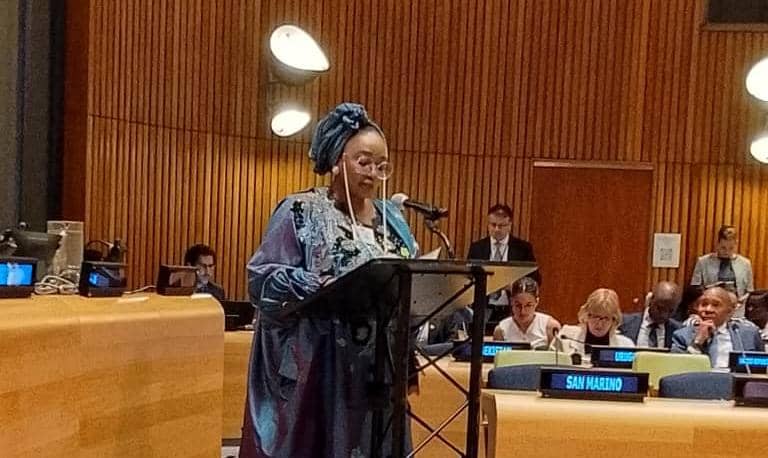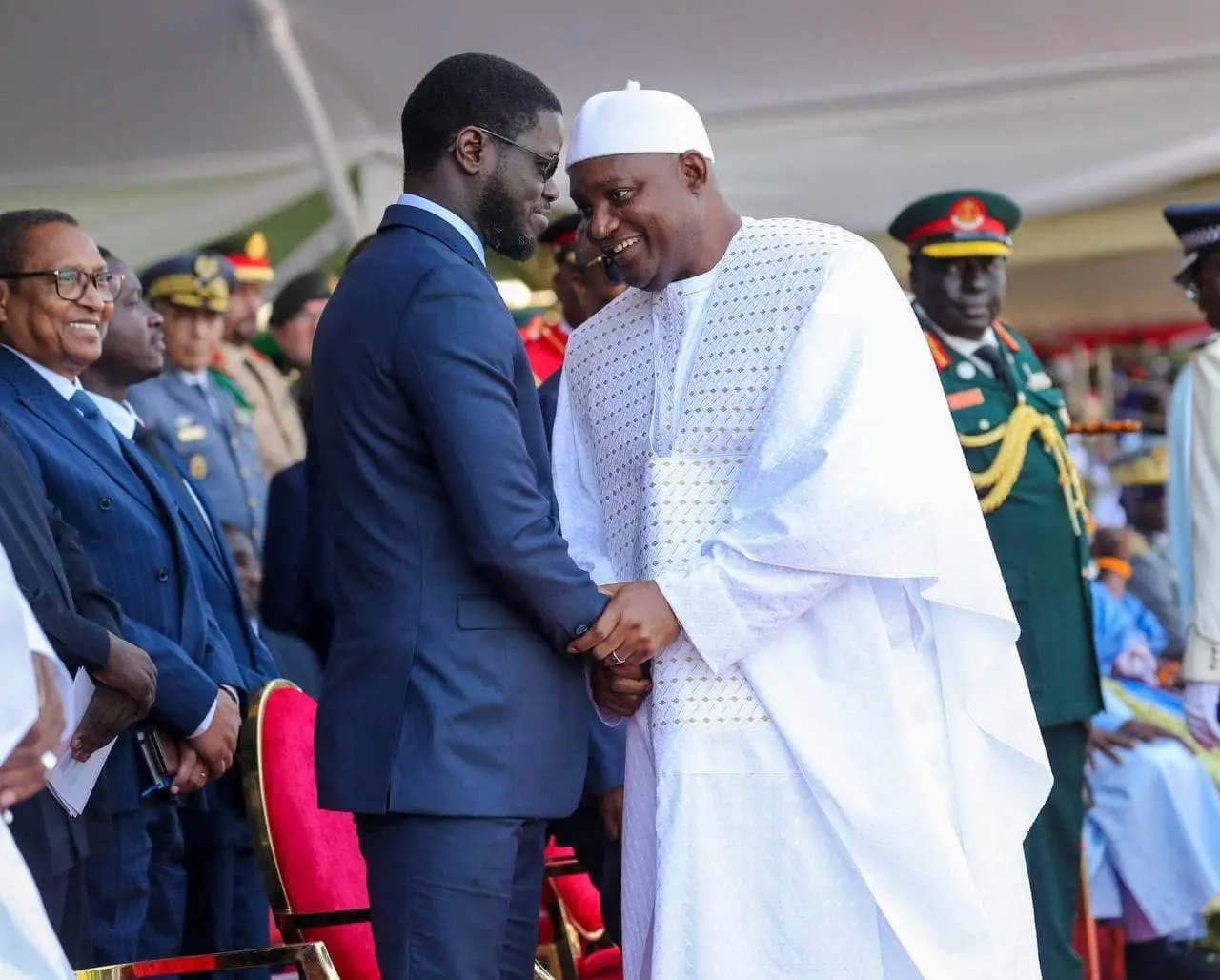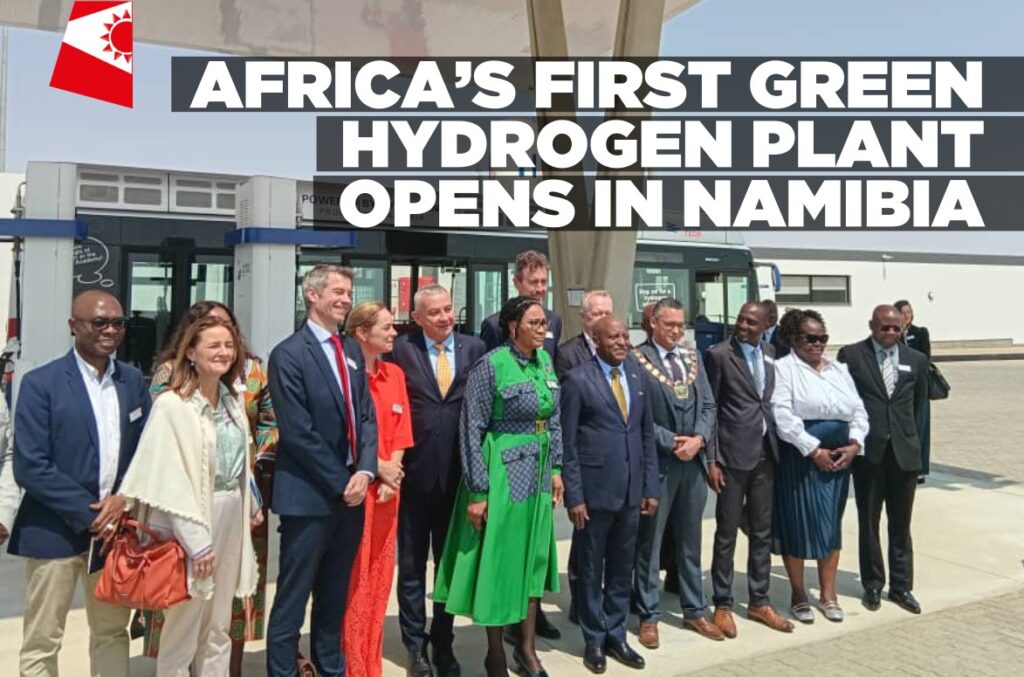Let 80th UNGA be remembered for actions, Nigeria’s Women Affairs Minister urges global community
By Tokunbo2
Copyright thesun

From Juliana Taiwo-Obalonye, Abuja
On the sidelines of the 80th United Nations General Assembly (UNGA) in New York, Nigeria’s Minister of Women Affairs, Imaan Sulaiman-Ibrahim, in a compelling address, positioned Nigeria at the forefront of global efforts to achieve gender equality.
Speaking at the High-Level Meeting commemorating the 30th anniversary of the Fourth World Conference on Women in Beijing, she made a clarion call for the international community to move beyond promises and rhetoric—to turn pledges into tangible progress for women and girls everywhere.
Describing the Beijing Declaration and Platform for Action as a “transformative vision,” Minister Sulaiman-Ibrahim reaffirmed Nigeria’s unwavering commitment to dismantling discrimination and empowering women globally. “Let this 80th General Assembly be remembered for its actions. Let it mark the moment we, as a global community, turned pledges into progress and rhetoric into results,” she declared with conviction.
Highlighting Nigeria’s strides, the Minister showcased progress such as increased school enrolment for girls, women breaking barriers in leadership, business, science, and governance, and the enactment of stronger laws against gender-based violence. Nonetheless, she was candid about persistent challenges facing women worldwide, including systemic inequalities, climate change impacts, conflict, and the digital divide, which continue to threaten gains made thus far.
“The verdict of history is clear,” Sulaiman-Ibrahim emphasised. “Nations that empower women are more prosperous, more peaceful, and more resilient. Gender equality is not just a human right; it is an economic imperative, a social necessity, and the very foundation of sustainable development and peace.”
She underscored education as the most vital investment to break poverty cycles, announcing key initiatives like Nigeria’s Renewed Hope Women Agro-Value Expansion (WAVE) Programme, designed to empower 10 million women along the agricultural value chain. Speaking at the recent launch of this programme, she noted that despite women constituting 70% of Nigeria’s agricultural workforce and producing 80% of agro-output, they earn 30% less and are limited by access constraints to farmland and financing. “This exclusion may not always be deliberate, but it is real—and it ends now,” she affirmed.
On governance, Minister Sulaiman-Ibrahim outlined Nigeria’s zero-tolerance stance on gender-based violence, coupled with deliberate policies such as Special Reserved Seats to amplify women’s representation in decision-making roles. “As women rise through education and empowerment, we must ensure their voices are heard at the highest levels of power… Women are therefore not an afterthought in Nigeria’s future; they are the driving force,” she said.
Her extensive remarks reflected a deep vision for inclusive growth and social justice, urging that the unfinished business of the Sustainable Development Goals be tackled with accelerated urgency.
The Minister called for collaborative work among nations, civil society, and the private sector to fulfil the original promise of Beijing—to ensure equality for every woman and girl everywhere.
In her address, she reiterated: “Thirty years after the landmark Beijing Conference, we celebrate progress but recognise the long road ahead. Millions of women and girls still face systemic inequality, violence, and exclusion exacerbated by global crises. At this pace, the 2030 target risks becoming a deferred dream. Nigeria stands ready to work with all nations to turn ambition into action and build a future where gender equality is a lived reality.”
The Minister’s presentation mirrors Nigeria’s bold gender equality agenda under the Renewed Hope framework, signalling a commitment to measurable programmes and impactful social interventions that place women at the centre of national development and global solidarity.



